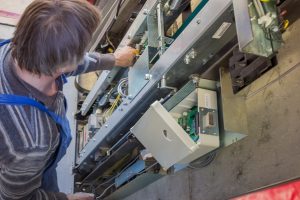If you manage a commercial building with more than one or two floors, then chances are it has an elevator. Over the past few years, you may have grown comfortable with outsourcing the work to professional engineers. Even so, it’s a good idea to understand some of the basics of your elevators and how they work.
This helps you play more of an active role in ensuring they are properly maintained over time. It also helps you to identify minor glitches versus serious problems that require shutting the elevators down.
Elevator Cabin
The cabin is the part of the elevator everyone is familiar with. This area transports people or equipment to different floors in your building. Some architects design the freight cabins to look different from the passenger cabins due to the likelihood of more wear and tear.
Elevator Doors
These govern the exit and entrance to the elevator cabin. When an elevator becomes stuck, especially mid-floor, these doors may get jammed. Note that there are typically two sets of doors: one on the inside and the outside.
Speed Governors
Some elevators are faster than others. The speed governors or governor rope is responsible for this. They control how fast an elevator travels, whether it’s climbing up ten floors or lowering five. The speed governors are usually found at the bottom of the car.
Buffers
This is also located at the bottom of the car and helps to slow an elevator during descent. This is especially important if an elevator malfunctions and plunges to the bottom of the elevator shaft. The buffers use dissipating or accumulating kinetic energy to bring the cab to a stop.
A little knowledge can go a long way when it comes to fixing elevators. However, you still need professionals to get the job done. The trick is finding the right company. Contact Keystone Elevator by calling 781-277-4655 or emailing us today!

